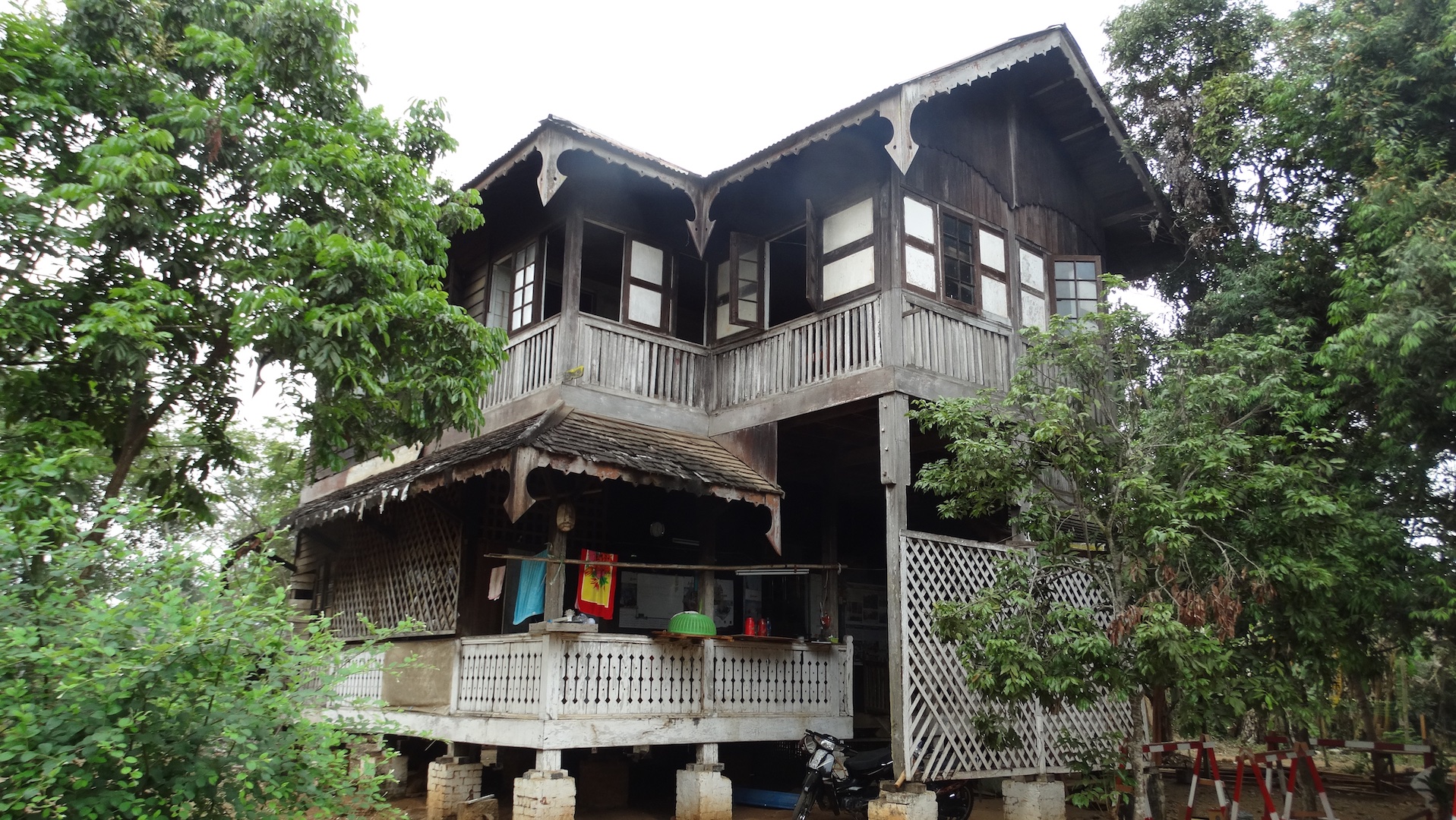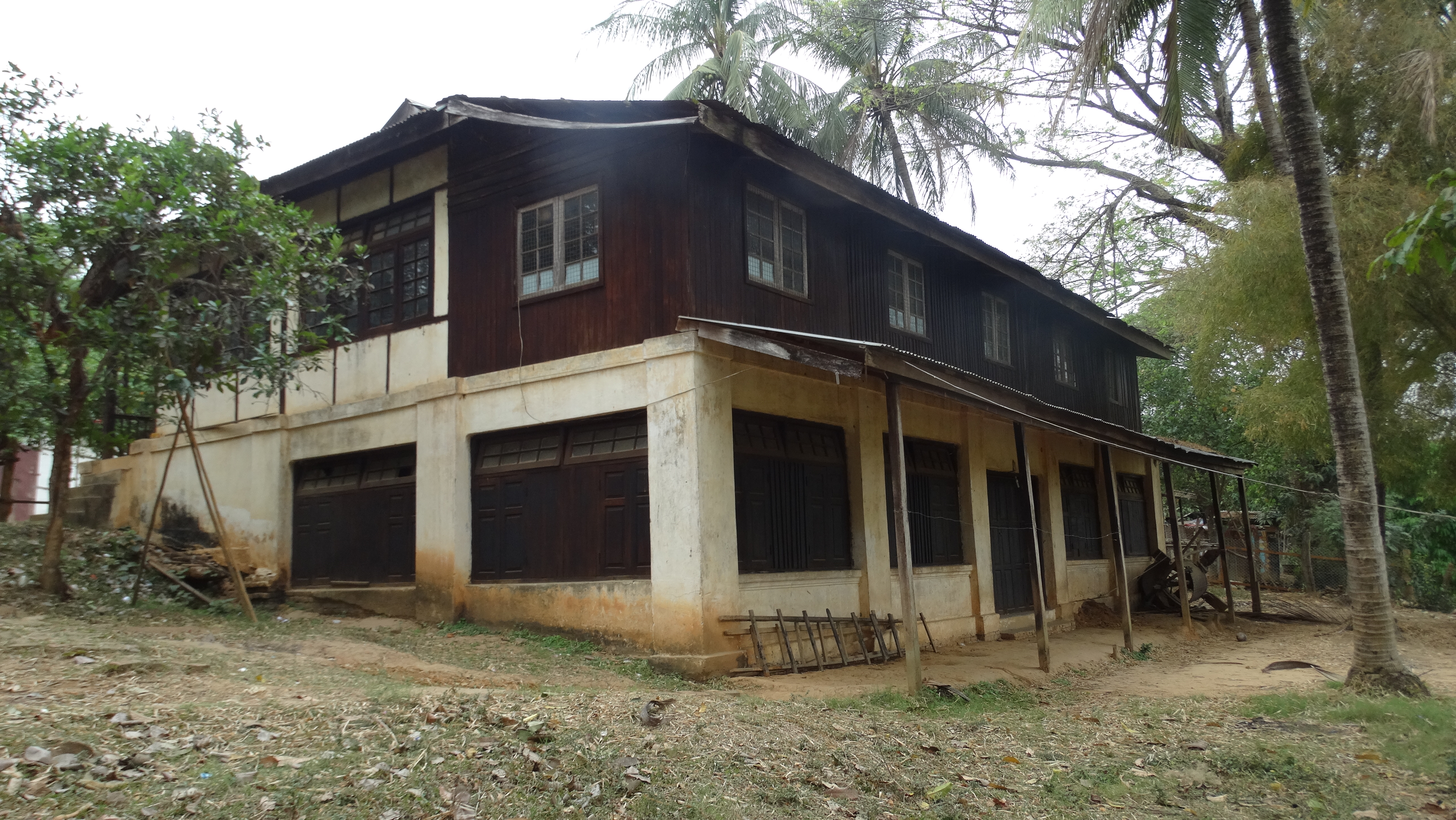FOLLOWING ORWELL TO KATHA, PART 2

As with many places in Myanmar, there are no official tourist attractions in Katha. But this is one of Myanmar’s charms. You are spared the enthusiasm-draining experience of shuffling around a site with numerous other people. No need to get a picture that will disingenuously look afterwards like it was some kind of peaceful, deserted haven.
Looking Around Orwell’s House
This was the case as the proprietor drove us through the gates into the dusty courtyard of Orwell’s former house. The place where he dedicated a significant amount of time to reflecting on his experiences and feelings. Where he crafted the complex characters that would shape the narrative.
Coming from modern, urban Mandalay, I hadn’t seen much architecture that merited a raised lower lip and nod of admiration. The house itself has been remarkably well-preserved, partly because a senior ranking local police officer now inhabits the lower floor. The upstairs, however, is empty. Treading carefully on the creaking timber floors, I tried to imagine life here for a man barely out of his teens, making his way in a remote part of the British empire. I stood on a small balcony where Orwell had allegedly sat in his chair, pen in hand. It’s tempting to imagine him leading an existence punctuated by adventure, exotic animals and bravery. But as with many cogs in the empire juggernaut, he faced more prosaic challenges. These included staying hydrated, avoiding ravenous mosquitos, maintaining good sexual sexual health and managing unrelenting loneliness.

The British Club in Katha
From the house, we drove to the site where the British Club stood; a place of great significance in the book. It was the exclusive epicentre of social activities for the local colonials. Indeed, one of the main themes in the book revolves around the possible inclusion of a non-white member, which fuels many discussions among the local British populace. Orwell presents these interactions in wincingly dark prose, revealing many of the entrenched prejudices and bigotry of the time.
Peering through the dusty panes of the ground floor window, the building – now home to an NGO – is still in relatively good condition. For all the glamour and luxury that a private members club is supposed to confer on its members, Orwell tells another story. Warm gin, drunken rants and a dearth of female company were the norm. It was more of a retreat for the disenchanted and isolated, brought together through administrative chance rather than genuine kinship.
Western Sensibilities
Regardless, I got a sense that people had lived and thrived there; more so than at Orwell’s house. Whether outposts like Katha, or bustling hubs like Kuala Lumpur, at the heart of colonial settlements was the social club. In KL that meant the Royal Selangor Club, the most quintessential of colonial installations. Replete with Tudor style exterior, catering facilities and, naturally, a cricket ground. Conversely, Orwell had described the British Club as, “a dumpy one-storey building with a tin roof.” While whites-only establishments are now a thing of the past in Malaysia and Myanmar, enclaves to satisfy Western sensibilities in foreign lands abound. For example, an Irish bar where I watched football in Poland, or a cafe in the Philippines that served what travellers had decided was ‘real’ coffee. Along with the absence of an Orwell museum or gift shop selling fridge magnets, they are, mercifully, still absent in Katha.
Katha in its Own Right
I’m not sure what my experience of Katha would have been like without the literary motivation that drove me there. I stayed for 3 days in total and loved it. The streets lined with neat, chocolate coloured teak houses, the thrill of escaping belligerent dogs. Watching scooter drivers negotiate narrow gang planks onto ferries, drinking beer served by children and wandering around Katha’s train station. There was one departure per day to Naba, but it took twice as long as the pick-ups going the same way.
As I bounced along the potholed roads on the back of a scooter taxi back to Naba, I wondered how long it took for the last vestiges of empire to leave Katha. Orwell’s legacy there is assured, but I can’t help feeling a bit sad that it was a British writer and former employee of the empire that brought me here, rather than something more discernibly Burmese.